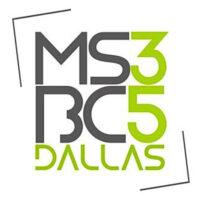
The vibe at last week’s Morning Show Bootcamp was noticeable from the get-go. Despite all the self-inflicted wounds placed on the industry, there is still a large group of people who will fight to keep the medium going and get it back on track.
The conference had the feel of a changing of the guard. Accepting the Kidd Kraddick Award, KDWB Minneapolis morning host Dave Ryan, noted how the conference used to be the old boy’s club of the likes of him, BJ Shea, and Brother Wease and was now full of younger talents and increasingly female. All of that is due to the tireless work of @TheRadioFam‘s Marie LaMaitre to galvanize a community. People like Bert Weiss and Kellie Raspberry, who have the right to say they know more about morning radio than most, were sitting in the panels absorbing the information with everyone else.
The week also had the vibe of an imminent changing of the guard. Companies like TM Studios, Throwback Brands and TextGroove, owned by millennials were primary sponsors. The big topic of the week was the use of AI, in-particular the RadioGPT product by Futuri Media. While iHeartMedia CEO Bob Pittman was adamant that “anybody who uses AI on-air is a fool,” the face of the AI revolution was front and center for a panel that got contentious at times.
WKHQ Traverse City MI Program Director/morning host ‘Ashley Z’ Elzinga, who is the voice of KBFF Portland’s “AI Ashley”, was on a panel with WASH Washington DC’s Toby Knapp, WLAV Grand Rapids’ Michelle McCormick, WAIA Melbourne’s Tony Zazza, and KWJJ Portland’s Nick Steele moderated by NuVoodoo’s Leigh Jacobs. The panel began with everyone giving Elzinga credit for being willing to be the first AI voice and show up to face a room full of people rightfully worried about AI voice taking their jobs with Knapp noting, “A woman in radio is the first to embrace this new technology and run with it. She deserves props for that.”
Elzinga was asked can AI Ashely do what human Ashley can do responding, “No. We write scripts.” First Dylan (KBFF Program Director Dylan Salisbury) was writing and she was coming off very deadpan. Now I am and she’s starting to sound like me.” Asked about other usage rights to her voice, she emphasized that KBFF is the only place where it can be used. Elzinga also noted during the panel that it is mostly being used to fill-in when she is unavailable to do her voicetracking duties for the station, “They’re still getting the personality they paid for even when I can’t be there. But when you want someone to fill in, is the fill-in going to be as good as the person there everyday. Its as good as Dylan and me writing for it.”
Discussing the potential for the industry to become over-reliant on the technology to cut costs, Steele commented, “Companies see dollars. If I can eliminate these positions they will look at it.” Knapp took a more definite tone, “This is why I’m happy to be in Washington DC where I’m repped by SAG/AFTRA and why the actors are on strike,” adding “Pandora’s out of the box, this stuff ain’t going back in. People are going to figure out how to use it more. We can either find out how to get compensated fairly, how it cannot take human jobs. You can’t put human emotion in an algorithm. This is why we need to nationalize SAG/AFTRA in radio.”
With other panels spotlighting post-pandemic contract negotiation, how to properly use social media to build personal brands, and mental health management, this year’s Morning Show Bootcamp gave resources to talents that are not available on a regular basis to talents. I had never seen a radio convention full of people absorbing everything as intently as nearly every panel last week. From nationally syndicated stars, corporate executives, down to the college students who came to get their foot in the door and sat in the front row for every session, it didn’t matter what level of status in radio they were in.
It was a refresher that more in the business need to see and hear. Get out of your station’s bubble and talk to others to see how to improve. The days when you would potentially get fired if you were caught talking to a competitor off the clock are long-gone. We as a radio industry need to work together to improve our status with the audience when faced with negative publicity on a near daily basis and a plethora of other listening options.
But for the conference to take place the week All Access shut down, the view of there being a changing of the guard was noticeable. As we put on our tribute mousepad in everyone’s gift bag, “Radio Lives On“. The form may change a bit, but as a community none of us are going anywhere.
